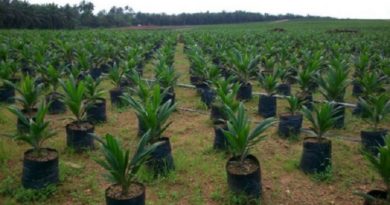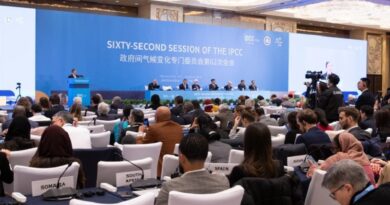New hub supports improved access to climate information- GEF
A newly launched Climate Transparency Platform offers a one-stop shop to track countries’ latest reported progress towards global carbon reduction goals, providing a key source of information for governments, civil society, and academia on the road to the UN Framework Convention on Climate Change’s COP28 summit in Dubai.
The new platform, which is supported by the Global Environment Facility and managed by the UN Environment Programme and UNEP Copenhagen Climate Centre, is designed to help developing countries meet the Paris Climate Agreement’s reporting requirements through the Enhanced Transparency Framework.
This includes a commitment for all signatories to the Paris Agreement to report by December 2024 on greenhouse gas emissions, climate impacts, and adaptation, and to track progress towards implementation of Nationally Determined Contributions or NDCs. This includes reporting on climate finance that is received or given.
“These national reports are essential components of cumulative estimates of global emissions trends, and for assessments of progress made towards climate goals,” said Chizuru Aoki, Lead Environmental Specialist at the GEF. “The more accessible we can make this information, the better, as it can be used to guide climate policy and economic development decisions related to decarbonization and resilience-building.”
“We need clear and reliable information on climate action to foster and enhance cooperation and collaboration in our global efforts,” said Miriam Hinostroza, Head of the Global Climate Action unit at the UN Environment Programme. “The Climate Transparency Platform is exactly the one-stop shop for all information related to climate transparency that the world needs, to unlock the ambition needed to address the challenge of the climate crisis.”
The Climate Transparency Platform, funded through the GEF’s Capacity-building Initiative for Transparency (CBIT), provides a hub for anyone working on global climate transparency issues, with information about events, knowledge products, and transparency projects and support providers. The platform provides access to detailed country profiles, with information on transparency reports, events, and related news. It also includes detailed information on projects, funding opportunities, and how to access support.
Additionally, the platform seeks to improve information sharing and exchanges between and across countries and regions, with 10 dedicated network pages aimed at peer-to-peer learning. Each of the networks covers a specific region or language group – for example, the Lusophone cluster includes Brazil, Mozambique, and Angola, and another network includes Spanish-speaking countries in Latin America and the Caribbean. The remaining networks cover Anglophone Caribbean, Anglophone Africa, Francophone Africa, Asia, Eurasia, Central Asia and Caucasus, Middle East and North Africa, and the Pacific.




